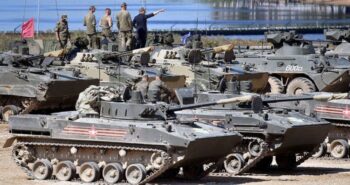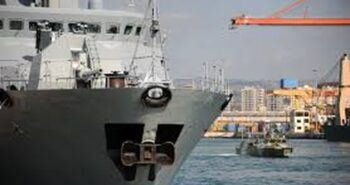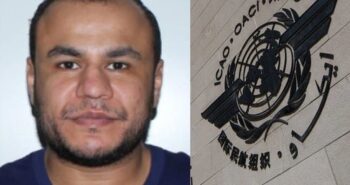By Mustafa Fetouri
Between September 2017 and last month, Egypt hosted seven rounds of talks aimed at unifying the military establishment in neighbouring Libya.
Participants were representatives of Field Marshal Khalifa Haftar, from eastern Libya, and their counterparts from the Government of National Accord (GNA), based in Tripoli.
The talks ended without any conclusive agreement. Unifying armed forces in Libya is not an easy task, because there are no professional, disciplined troops in need of unification.
In fact, there are no armed forces at all, as such, except what is known as the Libyan National Army (LNA) commanded by Haftar and based in Benghazi.
This could be described as a semi-professional army since it has a clear hierarchy, single leadership, professional officers and is backed by the House of Representatives in the east, which is the only elected legislature in the country.
In western Libya, it is a different story, as there are multiple militias which are nominally under the control of the GNA, particularly in and around the capital Tripoli. However, they have a free hand to do what they like.
They obey the GNA’s orders only if such orders serve their own interests, such as controlling the population; otherwise, they do not. This has been demonstrated in repeated rounds of fighting over territory and influence.
There are also the semi-organised Bunyan Marsous troops who ejected Daesh from Sirte in 2016 with the help of US air strikes.
They are not an army because most of the cadres are from Misrata; the Bunyan Marsous HQ is in Misrata; the troops include several former militia leaders, and the command structure has very little to do with the GNA’s Ministry of Defence in Tripoli.
All militias, Bunyan Marsous included, have one thing in common; they are all paid by the GNA.
This means that the Cairo talks are just talks about nothing really, but Egypt hopes to make something out of nothing, if only for its own sake.
It has a long, mostly desert, border with Libya and finding a unified force inside its neighbour to protect the border will be helpful to Cairo in its fight against terrorism.
After all, Egypt’s security is meaningless if Libya is unstable and lacks any disciplined force able to control its own borders.
Since February 2015, Egypt has bombed targets across the Libyan border at least three times in retaliation for what it calls terror attacks planned and organised from inside Libya.
Just last month, the LNA captured Egypt’s most wanted man, Hisham Ashmawi, in Derna, eastern Libya; he is accused by Egypt of being the mastermind behind some of the attacks on its Coptic community.
Ever since President Abdel Fattah Al-Sisi appointed Lieutenant-General Mahmoud Hijazi in early 2017 as his point man on Libya the latter has been trying to have the Libyans come together, at least militarily, in order to stabilise the country and help Egypt as well.
Egypt also sees Haftar as a trusted military partner with whom it can do business. He has ties to the country that go back to the 1973 October War when he led the Libyan forces that helped Egypt win against Israel.
More recently, Egypt was helped him with arms, intelligence, and occasional air strikes when he launched “Operation Dignity” to rid Benghazi of different militias, including Al-Qaeda, in 2014.
Haftar reorganised the remnants of the official Libyan armed forces which survived the NATO bombardments in 2011 that ended the former Gaddafi regime.
However, the veteran officer sees the LNA as the only legitimate Libyan army. He is credited with rebuilding the LNA from scratch over the past four years.
He also believes that, under his command, it has so far proved itself to be a true professional and disciplined national army able to control Libya if it gets the appropriate support and finances.
He points to his success in taking over eastern Libya and parts of the south as evidence of this.
Politically, Haftar enjoys some international clout. He receives foreign dignitaries regularly, and visits other countries himself, including France, Egypt, the United Arab Emirates, Tunisia, Sudan and Algeria.
Haftar’s opinion, of course, is disputed by his adversaries in western Libya, who believe that the LNA is no more than a bunch of militias which have come together in eastern Libya solely to serve their own interests.
They also suspect that Haftar harbours political ambitions and is another Al-Sisi in the making who ultimately hopes to run Libya by military decree.
Egypt and the GNA know for sure that Haftar will not give up his hard-won position as the commander of the LNA and that any attempt to create another army in western Libya will be seen by him as yet another militia that should be fought to the end.
In all of this, the GNA is actually powerless, since it cannot publically endorse the LNA under Haftar nor make other militia leaders in western Libya do likewise.
The main sticking point in the talks has always been who gets what military rank and how. To get around this, those talking in Cairo came up with the idea of power-sharing by setting up new structures that could guarantee as many positions as possible to as many high ranking officers as possible.
They proposed creating three new councils within the Ministry of Defence: a council of general command, a national security council and a supreme council of defence.
It is not clear how such a setup will work but the aim is clear: no single officer, including Field Marshal Khalifa Haftar, will enjoy the authority of, for example, a “supreme commander”.
It is very unlikely, though, that Haftar, a military man through and through with both dark and shining moments throughout his long career, will ever accept any challenge to his authority.
His role in the 2011 civil war might have been limited but since then he has become like a saviour, at least in eastern Libya, with a widening popularity base across the country.
He and his top lieutenants have little trust in the GNA and other politicians who do not publically back the LNA under his command.
This lack of trust makes Haftar and his men negotiate anything but their positions. They know that the moment they give them up they risk their own safety.
The UN Envoy to Libya, Ghassan Salame, has so far played little role in the Cairo talks. He is, though, ready to endorse them if they produce some tangible results.
Time will tell if they actually do produce anything. In the meantime, they remain talks and nothing else.
***
Mustafa Fetouri is a Libyan academic and freelance journalist. He is a recipient of the EU’s Freedom of the Press prize.
____________




